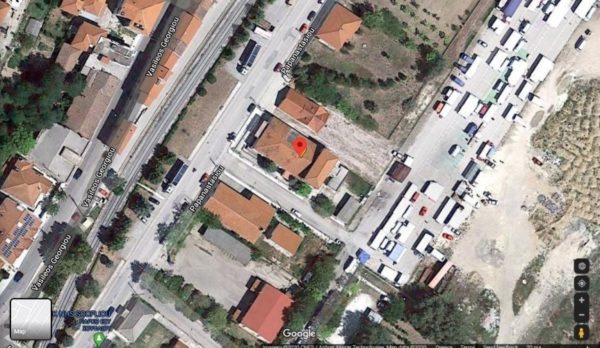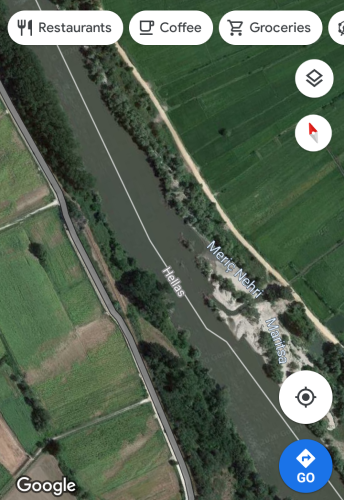On approximately 9th December 2019, the respondent was at a supermarket buying food in the town of Soufli (GRK) when he was approached by three male, Greek police officers. The officers apprehended the respondent, asking him to take off his shoes before placing him in the back of a police van. Here, he discovered two other people from Syria who had been caught by the police earlier that day.
The respondent was then taken to a “prison” (coordinates 41.190806,26.304000) where there were lots of large vehicles with people being detained in the back of them. Here, the police stole everything from the respondent:
“all the phones, all the money, all the clothes, all the bag,”
The officers also stole the food he had bought at the market and his friend’s passport, which he was looking after. The respondent was denied access to the toilet while inside the detention facility and remembers being provided a dirty blanket covered in urine (“have like pee”). In relation to the lack of toilet facilities the respondent said
“if you want to pee, you should to pee in one bottle. And you can see a lot of old bottle from the pee. It was so disgusting”
The respondent also describes two incidents inside the detainment facility, one, where the police began filming a 60 year old man (allegedly speaking Bulgarian) who they had allowed to go to the toilet. And another, where the police beat people for knocking on the doors of the cells where they were being held. The respondent was detained for two days “without food, without water” but encountered other people who had been held there for up to a week. During this time, the police did not take the respondent’s details or fingerprints. However, they did mislead him by promising to take him to a camp.

On 11th December 2020, at night, the police drove the respondent and a group of around 20 people (men, women and children, from Syria, Morocco and Bulgaria) to the Evros river (coordinates 41.128335, 26.321678). The police wore black and used binoculars (this the respondent said was to look out for Turkish police).
The group was split in half and put onto two separate boats. Then, the police threw a bag into the river claiming it had everyone’s phones in it, although the respondent said he thought the bag looked like it was actually full of rocks. The respondent was told, “Shut up, we don’t want to hear you. Be quiet.” Then, making as little noise as possible, the boats moved slowly across the river, and the two groups were released onto Turkish land.

Approximately 500 meters inland, the transit group were met by Turkish police or “army” who provided them with food and clothing, and helped to make a fire. Afterwards, people who were sick were provided access to medical care and taken to the hospital whilst the others had their papers checked. Many people were then removed to unknown locations, but those without documentation, like the respondent, were provided with a “paper”.
At a later date when the respondent was able to successfully cross to Greece, his transit group (eight men from Syria, Palestine and Iraq, between the ages of 18-46) had to endure snowy conditions walking through the Greek mountains and said he feared for their lives. They managed to reach Xanthi (GRK) where some passersby offered the transit group transport to Thessaloniki, before threatening them with knives and stealing their money, phones and power banks. The respondent compared this experience to that of the Greek police and suggested both were “like mafia”.
